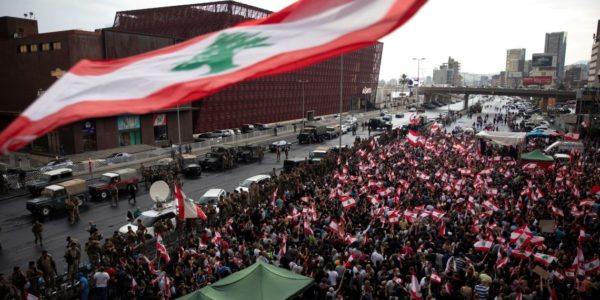
WHY WE WROTE THIS
At the heart of Lebanon’s strife is a classic confrontation between an idealistic protest movement angered by corruption and an entrenched political elite with much to lose and many levers to pull.
And now, the “machine” strikes back – with a warm embrace.
Lebanese activists whose anti-corruption protests led Prime Minister Saad Hariri and his government to resign are confronting the reality that they are facing down more than just a government, but an entrenched political class that is refusing to give an inch.
Even as the young protesters united across sectarian lines to demand a strengthened judiciary and government accountability and transparency, so too are Lebanon’s political elites closing ranks in the face of the popular will, going to any length to prevent such reforms from taking place.
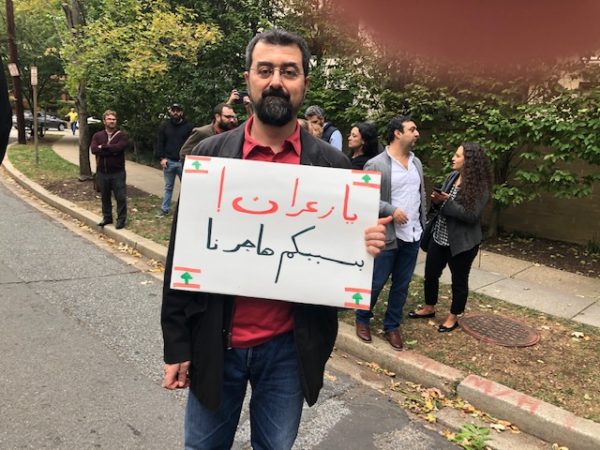
“You crooks , because of you we had to emigrate “. The protest took place in Washington, DC in front of the Lebanese embassy. Thousands of Lebanese expats demonstrated globally in front of Lebanese embassies and consulates. Ya Libnan Photo
It’s testing the resilience of the economic recession-fueled movement, which is calling for an end to a sectarian system that has allowed political leaders to mismanage services with impunity while awarding themselves billions in government contracts.
After floundering for days when the nationwide protests took them by surprise on Oct. 17, Lebanon’s political leaders are trying every tack: dismissal, condemnation, intimidation, violence, and division.
But even the tried-and-true accusations of a “Zionist plot” or a U.S.-backed conspiracy have failed to stick.
Now, with the resignation of Mr. Hariri last Wednesday, leaders of the various sectarian political groups are trying to co-opt the protest movement, embracing demonstrators in a bid to regain supporters while heading off discussions of deeper structural reforms.
After a week of rising violence in which he blamed foreign powers for the protests and warned of “chaos” if the government resigned, Hezbollah leader Hassan Nasrallah appeared in a televised speech on Friday urging that “the new government must listen to the demands of the people who took to the streets.”
“There must be serious work, because time is tight and so is people’s patience,” Mr. Nasrallah said.
Parliament speaker Nabih Berri, whose Shiite party Amal joined in the physical assaults on protesters, said he now supported a “techno-political” cabinet that “represents the protest movement.”
In a televised address Friday, President Michel Aoun, a Christian ally of Hezbollah, called sectarianism a “destructive disease,” adding that “ministers should be chosen according to their competencies and expertise, not political loyalties.”
And, trying to riff on protesters’ trademark chant demanding government resignations of “all of them, means all of them,” the aging President Aoun proclaimed Sunday: “I love every one of you; and ‘I love all of you,’ means all of you.”
Even Mr. Hariri is reportedly waiting in the wings for a return to government and is trying to rebrand himself as a reformer who took a stand by stepping down.
The deeper crisis
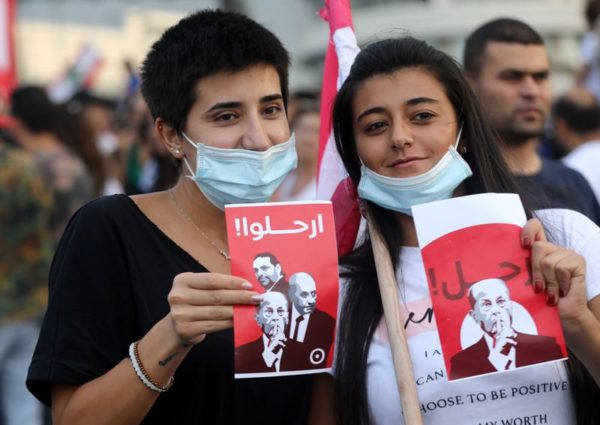
But despite the verbal concessions there has been little talk of what ignited the protests: the abuse of state funds and the political leaders’ power to enrich themselves and leave citizens dependent on mafia-like patronage networks that encompass government contracts and public employment.
“The Lebanese political class refuses to acknowledge that this is not only an economic crisis, but a deep crisis at the heart of the Lebanese political system,” says Makram Rabah, a Lebanese analyst and lecturer at the American University of Beirut.
“They simply do not want a technocratic government or an independent judiciary because they do not want to give up control of the judiciary or bureaucracy,” says Dr. Rabah. “But the main reason protesters are in the streets is the fact that we don’t have a separation of powers, and more importantly, we don’t have accountability.”
Instead, leaders are retreating to their sectarian audiences to claim that they are reformers being obstructed by the other political groups and, implicitly, sects.
“These leaders are saying ‘I am trying to reform the system, but my partners are stopping me,’ without saying who their partners are and what reforms they are proposing,” says Hilal Khashan, a professor of political science at American University of Beirut.
“Everyone is trying to depict themselves as a reformer fighting against a corrupt political system, but in reality they are just protecting each other’s backs.”
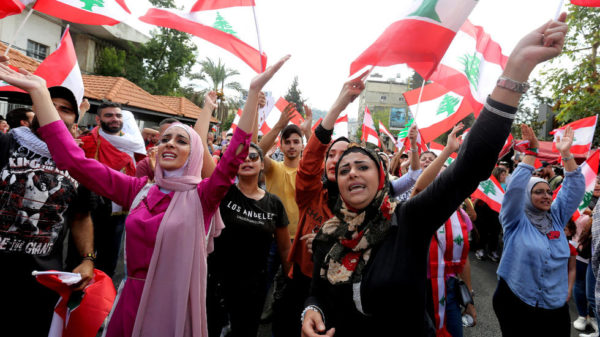
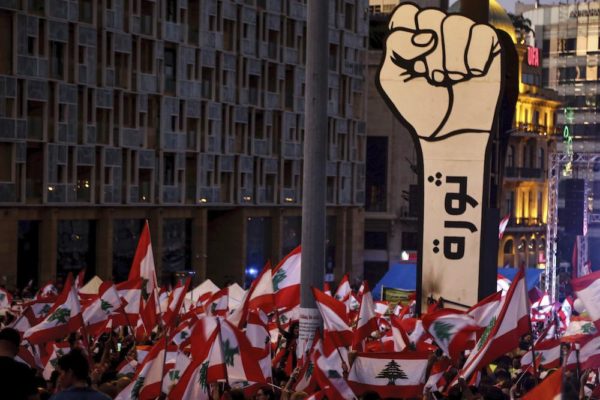
Leave a Reply
You must be logged in to post a comment.